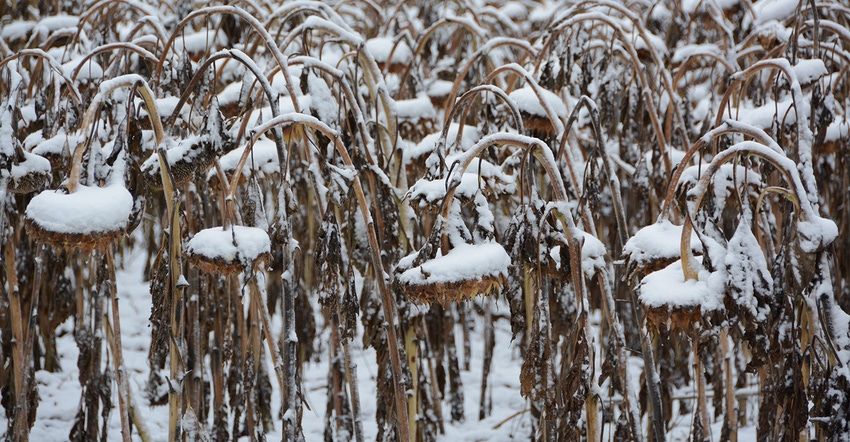
Sunflower prices are stronger than normal for this time of the year as a late and very trying harvest has crush plants searching for seed supplies. Since harvest began, nearby prices have risen $1.50 to $1.60 per cwt.
In 2018, harvest pressure and heavy producer selling caused prices to fall with nearby sunflower prices trading in range of $16.60 to $16.95 for NuSun and high oleic at $16.70 to $17.70 at the crush plants. That will likely not be the case this marketing year as the sluggish harvest pace and slower deliveries led to little harvest pressure. It is very possible that the market low has already been established and prices will remain relatively firm for the foreseeable future.
Bird food prices have also had some upward movement of $1 per cwt. in some locations after being somewhat quiet. Warmer-than-normal temperatures with little snow on the East Coast, the primary market for bird food, has slowed demand. Bird food prices could rally if tougher winter conditions set in.
In the world vegetable oil market, palm oil prices are expected to continue an upward trend as production levels are significantly reduced from 2019. Oil demand is robust, and this has propped up soybean oil values on the Chicago Board of Trade and is good news for sunflower. Sun oil values are closely tied to soyoil values which could result in upward price momentum in seed prices at crush plants.
2020 prices
Looking ahead to 2020 new crop, NuSun and high oleic sunflower prices are expected to be aggressive the next few months as the industry tries to secure 2020 production after 2019’s smaller-than-expected crop. The potential of tight ending seed stocks by the end of September 2020 has oil crushers offering attractive 2020 new crop contracts, which have increased substantially since they first rolled out last fall.
When looking at new crop sunflower prices and crop budgets, producers need to consider the value of oil premiums paid on oil sunflowers. Oil premiums are offered at the crush plants on oil content above 40% at a rate of 2% price premium for each 1% of oil above 40%. For example, 45% oil content results in a 10% price premium, which pushes gross returns from oil sunflower even higher.
Once again, 2020 will likely be another challenging year in terms of marketing commodities. Crops that were profitable last year may not be in 2020. In the months ahead, price direction will be determined mainly by export demand news and South American oilseed production prospects. The U.S. dollar continues to stay strong against other currencies and this could lead to a slowdown in exports as importers look for cheaper sources of product. Weather in Argentina and Brazil was favorable as of late December. To keep up with price movement and find seed buyers see sunflowernsa.com.
Sandbakken is executive director of the National Sunflower Association.
Read more about:
SunflowersAbout the Author(s)
You May Also Like






